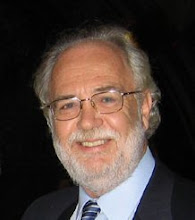SLanguages 2008 Online Conference - Free!
The SLanguages 2008 Conference brings together practitioners and researchers in the field of language education in Second Life for a 24-hour event to celebrate languages and cultures within the 3D virtual world.
This second annual event is entirely free and takes place on the EduNation islands within Second Life. Take a tour of the venue:
http://www.slanguages.net/venue.php
Starts 18.00 GMT, 23 May 2008Ends 18.00 GMT 24 May 2008
Further information and registration form at:
http://www.slanguages.net
The ICT4LT site contains an intro to teaching and learning languages in Second Life, with a brief report and screenshots of the SLanguages 2007 Conference:
http://www.ict4lt.org/en/en_mod1-5.htm#secondlife
Saturday, 22 March 2008
Subscribe to:
Post Comments (Atom)





4 comments:
I made a small contribution to a workshop at the CALICO 2008
conference in San Francisco on 19 March 2008. The workshop
was entitled Virtual Worlds and Language Teaching: Real Ideas for a
Virtual Classroom.
I made my contribution from my home in the UK via Second Life. I was able introduce myself briefly, using voice chat, to the workshop participants gathered together at "Renoir's Roost" on one of the
EduNation islands. A wiki relating to the workshop, with lots of
useful links and information has been set up by the workshop leader,
Randall Sadler:
http://sl4calico.pbwiki.com
I am becoming more and more impressed by this technology as a means of holding "virtual" meetings. At the same time as the workshop was taking place I was conversing via Skype with a friend in Abu Dhabi - and later we continued our conversation via Second Life.
I shall be giving a short intro to the EUROCALL HQ in Second Life at EUROCALL's forthcoming Computer Mediated Communication conference in Padua, Italy, 18 April 2008, GMT 17.30. Further information can be obtained via the CMC SIG discussion list at:
http://groups.yahoo.com/group/CMC_SIG/
Regards
Graham Davies
There is a need for MFL teachers in UK to be able to use ICT as a collaborative and communicative tool especially in the light of curriculum changes. ALL has produced a new toolkit at http://www.all-nsc.org.uk/nsc/
Graham - I hope you can help pass this message on as your expertise and network can help to exemplify best practice in an 'hour of need' - suddenly this work that has been going on for years may be moving into the mainstream.
I run www.globalgateway.org which is the tool mentioned by ALL that can link your school virtually with one which speaks in your target language, or one which is also learning your target language (eg Romanina school learning French).
This gives real and relevant learning experiences and cultural understanding through engaging communication.
We are based at the British Council and funded by the DCSF and offer schools for French Spanish German Italian Russian Mandarin Japanese and all community languages.
Our service is free. We are a hub - we refer teachers to the following ICT providers to support co-learning:
eTwinning
ePals
think.com
iEARN
Rafiki
Flashmeeting
eLanguages
studentmentoring
What does an MFL teacher do? Register at globalgateway.org and we start to send suggested link schools, projects and toolkits.
Eg we can arrange training in podcasting and blogging.
All the best!
Liz Hitchcock
liz.hitchcock@britishcouncil.org
Thanks for your comments, Liz!
I have noted the ALL site URL:
http://www.all-nsc.org.uk/nsc/
I am a long-standing member of ALL (Association for Language Learning):
http://www.all-languages.org.uk
Computer Mediated Communication (CMC) has been a major feature of my work in ICT dating back to my first experiences with email in the early 1980s, my contribution to the Hampshire LEA IT (HIT) project in around 1985-86, and then the ELNET (European Languages Network) project in 1989-90, which was managed by Southampton Institute of HE. Things have moved on rapidly since then, of course – but similar challenges and problems still remain. Currently, I am investigating the possibilities of using Second Life. As a first step, I have set up the EUROCALL HQ in Second Life, which we have been using for meetings and presentations:
http://slurl.com/secondlife/EduNation%20III/9/29/22/
There is a substantial section on CMC at the ICT4LT website, which was originally written by Sue Hewer in 1999-2000, but which I have substantially expanded at regular intervals:
Section 14, Module 1.5:
http://www.ict4lt.org/en/en_mod1-5.htm#anchor95616
Global Gateway and other similar sites are listed in Section 14.8
http://www.ict4lt.org/en/en_mod1-5.htm#14.8
EUROCALL has recently set up a CMC SIG and a Yahoo discussion list:
http://www.eurocall-languages.org/sigs/cmc.html
The CMC SIG ran a successful conference in Padua in April 2008 and they will be presenting at the EUROCALL 2008 conference in Hungary:
http://www.asszisztencia.hu/eurocall/
Have a look at Joe Dale’s blog. He’s a keen user of podcasts, videoconferencing and many other things related to ICT and languages:
http://joedale.typepad.com
See also my list of links at:
http://www.camsoftpartners.co.uk/websites.htm
The ICT4LT Glossary of Terminology is also worth a look. It has too main aims: (i) to demystify ICT jargon and (ii) to act as an index to the ICT4LT site as a whole. Comments and additions are always welcomed:
http://www.ict4lt.org/en/en_glossary.htm
Hi!
I find relly useful the use of CALL in ELT especially in secondary schools and language institutions. I'm a preservice teacher who is doing a research on
advantages and disadvantages of the use of new technologies and communication in English Language Teaching.
If you have any piece of information, please send it to me as soon as possible to:
amigadelsaborbumangues@hotmail.com
or enter my web page and leave messages on:
http://www.amigadelsaborbumangues.pbwiki.com/http://www.amigadelsaborbumangues.pbwiki.com/http://www.amigadelsaborbumangues.pbwiki.com/
Thank you.
Post a Comment